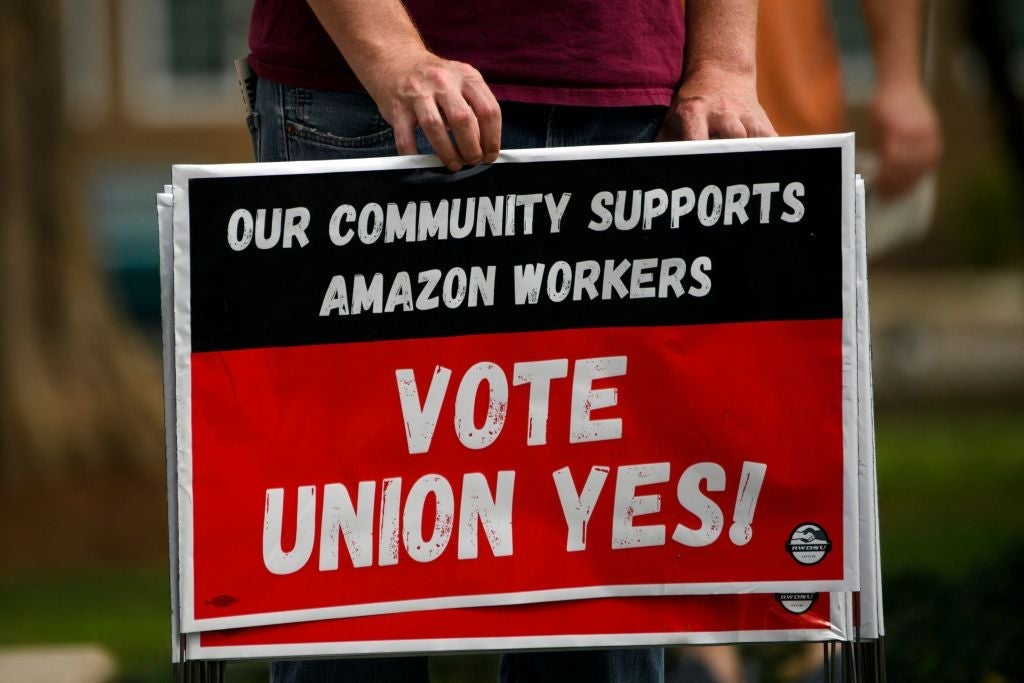
After decades of demonisation in the Western world, unions are again rising in popularity, a move driven mainly by younger workers – particularly those from Generation Z (born between between the late 1990s and the early 2010s) – concerned over what they see as deteriorating work conditions.
In Staten Island, New York, an Amazon warehouse unionised in April 2022. Soon after, Amazon fired a series of employees close to the unionising effort. Similarly, at the coffee behemoth that is Starbucks, staff have been pushing to unionise across the US, successfully accomplishing it in individual stores, but experiencing union-busting activities in retaliation.
Why are unions seen as the great evil?
Why are companies seemingly horrified by the prospect of a unionised workforce? Is giving employees a collective voice and a structure that tends to deliver better working conditions really that bad for business? It is no secret that highly unionised countries have a higher standard of working conditions for their population, with Nordic countries being the poster child here.
Iceland, Denmark, Sweden and Finland are the leading countries among OECD members when it comes to the percentage of unionised employees, with the US nearer the bottom end. Foreign direct investment (FDI) flows need not be affected by a unionising culture either, as demonstrated in a paper published in the Journal of International Trade & Economic Development titled ‘Temporary social dumping, union legislation and FDI: a note on the strategic use of standards‘. Here, the writers note that from their research, production subsidies can circumvent the need to engage in ‘social dumping’, the practice where workers are given pay and/or working and living conditions that are substandard.
“That is, if the government has another fiscal instrument at its disposal, union legalisation is no longer a crucial factor in attracting inward FDI,” it continues. “This result goes against the popular perception that unionisation is a major deterrent of FDI.”

US Tariffs are shifting - will you react or anticipate?
Don’t let policy changes catch you off guard. Stay proactive with real-time data and expert analysis.
By GlobalDataA separate study written by Helmut Schmidt University professor Martin Krzywdzinski looking into the effect of unionising on FDI in the automotive and chemical sectors in the US and Germany states: “Union density had no systematic negative impact on FDI inflows. This might be related to the fact that automotive and chemical companies from both the US and Germany are used to union representation.”
As an explanation, Krzywdzinski points to the possibility that “companies simply do not consider industrial relations when choosing investment locations”, as was argued by previous research studied by the author. Another explanation from the report, backed by other studies, suggests that “countries with high union membership levels tend to offer more generous investment incentives in order to compensate for their ‘bad image’ as union strongholds“.
Demanding better work conditions is here to stay
It has been widely reported that the Covid-19 pandemic has brought about changes to workforces across the world, with working from home becoming the norm for many white-collar workers, and many countries undergoing a ‘Great Resignation’, a trend in which employees have voluntarily resigned from their jobs en masse, that began in the first few months of the pandemic.
This should refocus the attitudes of big companies towards what their staff actually want. Satisfied workforces rarely demand union access en masse. It is understandable that large companies may see unions as unwanted obstacles, irritants that do little for a business’s profit sheet but act as a constant reminder of what they are getting wrong. However, ignoring the voices of workers is not an option for these companies either. Working with unions, not against them, may well be the best way forward if employers are to both attract and retain their workforce.







